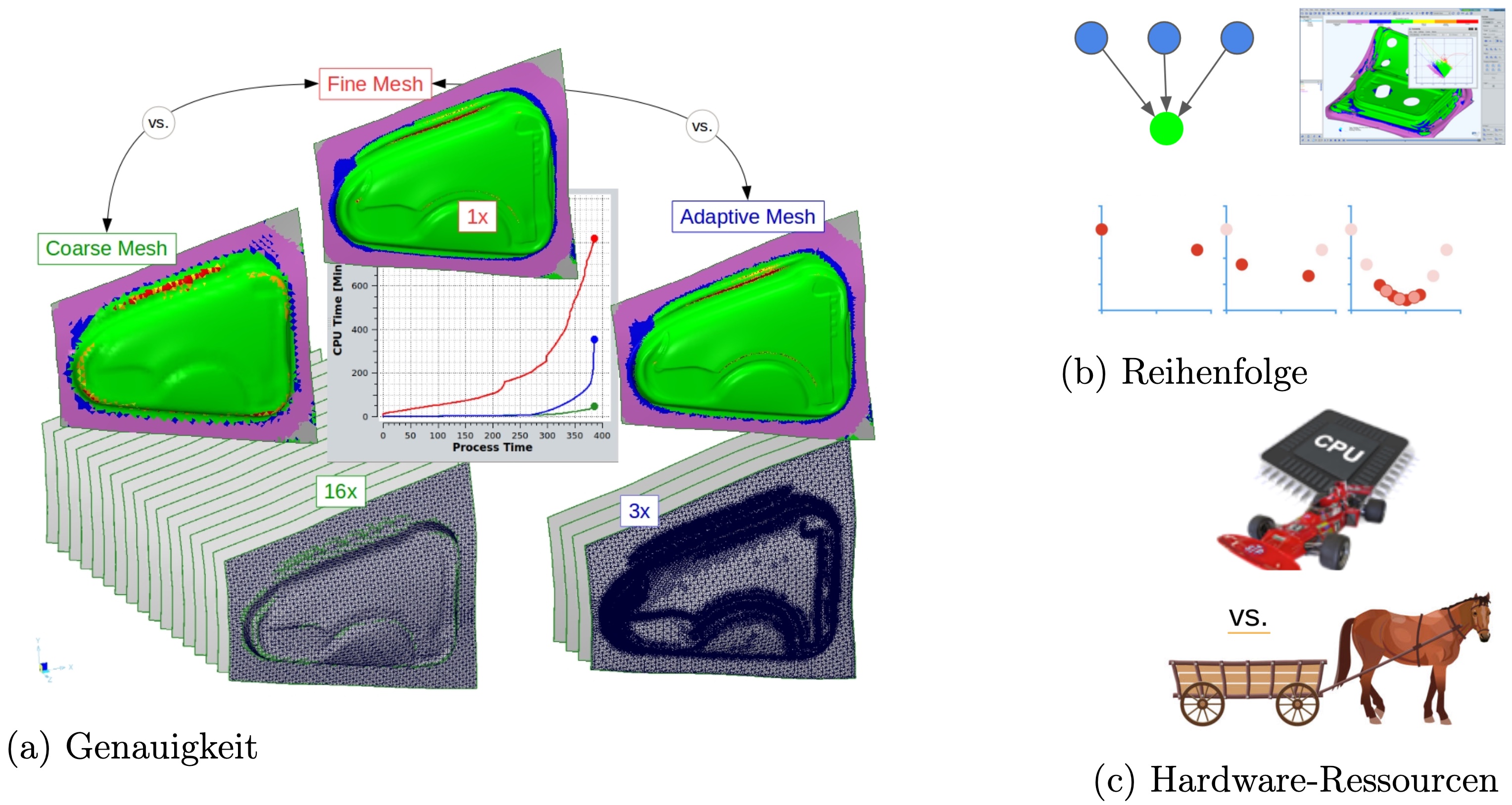Overview
BMBF (2022-2025)
The capabilities of modern computer simulations have the potential to transform the industrial product design process by optimizing a very large number of design parameters while saving resources in production. However, in-process optimization often requires very large amounts of computing time on HPC systems. This is exactly where the ENSIMA project comes in: by using AI methods, the determination of design parameters is improved and accelerated, while at the same time appproxi- mate and heterogeneous computing reduce the execution time of the steps in the simulation process itself. ENSIMA also improves the energy and cost efficiency as well as the overall resource utilization of complex, multi-stage simulation workflows. Furthermore, the increase in efficiency of the simulation workflow will also lead to a significant increase in the quality of the simulation results. This, in turn, will also enable the users of the simulation systems to significantly optimize their processes - in this case, sheet metal forming in the vehicle industry - which will also result in improvements in efficiency in this area, particularly with regard to the utilization of the material and thus indirectly also to manufacturing-related emissions and the energy requirements of vehicle production.

The figure above shows the interlocking of the optimization dimensions in the sample selection and execution on the available hardware resources. The framework methodology developed in ENSIMA controls the sample selection based on the initial or already existing samples and determines the optimal degree of parallelism for the selection of the next samples as well as the optimal precision. Optimization is performed with respect to computation time or resource consumption.
The further development in the field of performance, energy and TCO modeling in ENSIMA forms the basis for optimizing the components in the simulation workflow and determining the best solution path of product optimization given resources. Similarly, an acceptable solution can be determined with the least amount of resources. Here, the optimization is performed by an AI-based controller, which improves the choice of process parameters compared to a "manual" controller by faster convergence and increasing the degree of automation. The acceleration of the actual simulation components is done by using approximate computing, i.e. selective reduction of accuracy to exploit performance advantages, as well as heterogeneous computing, i.e. exploiting accelerators. The latter is made independent of the uniform availability of accelerators in all computing nodes by a so-called accelerator service. To support these developments, performance analysis tools and methodologies are being further developed to support modern heterogeneous architectures.

